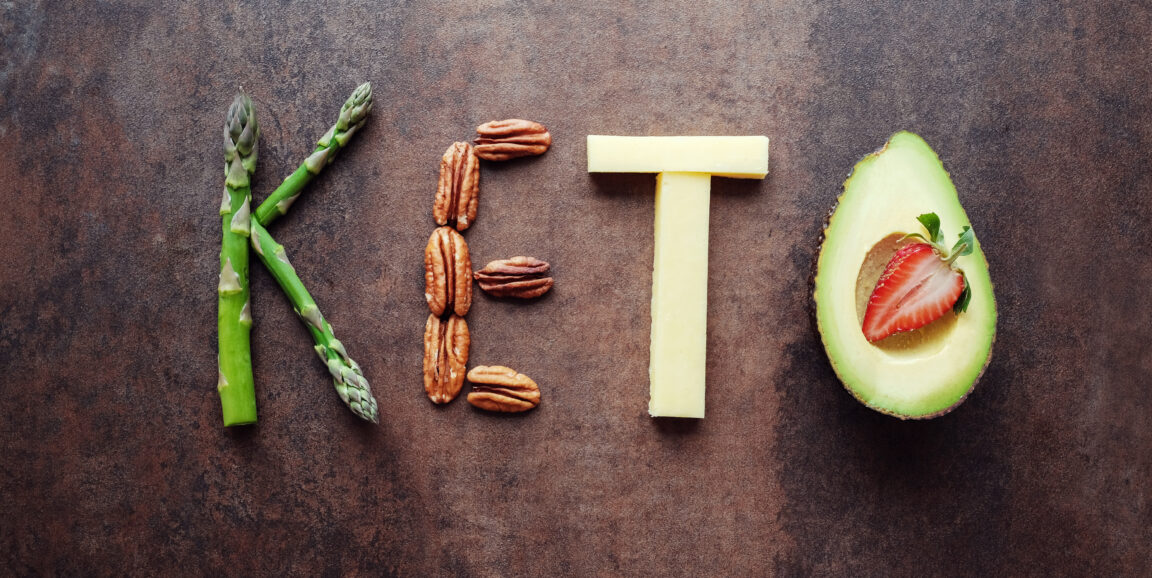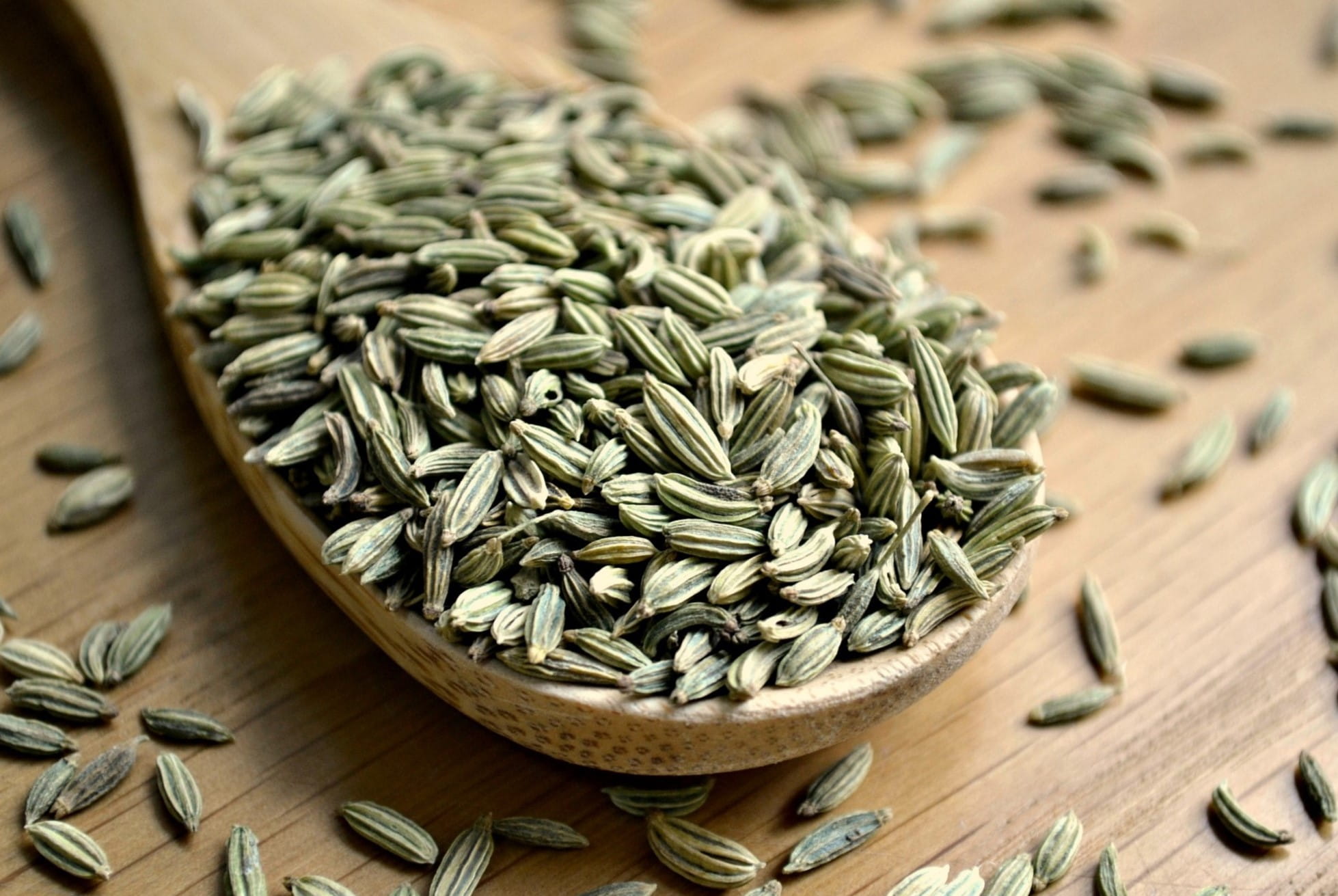The keto diet has become the go-to low-carbohydrate weight loss method and it has exploded in popularity in the health industry. But how does it affect our gut microbiome? Let’s take a further look into the evidence behind this diet.
The keto diet is controversial topic that many health experts continue to debate. Although weight loss results and neurological benefits have been reported, it can pose certain health risks such as low blood pressure. Let’s delve into how going keto affects your gut health, and what to look out for when following this diet.
What Is a Keto Diet?
A ketogenic diet is a term referring to any diet therapy in which the dietary composition is expected to result in a ketogenic metabolic state (ketosis). Physiological ketosis is an elevation of ketone bodies in the body (concentration of maximum of 6-7mmol/L) that can result from any state of increased fatty acid oxidation including, fasting and prolonged intensive exercise1.
A ketogenic diet is a term referring to any diet therapy in which the dietary composition is expected to result in a ketogenic metabolic state (ketosis).
A keto diet typically consists of the classic ratio of 4:1, fat in grams to protein and carbohydrate in grams respectively. The general recommendation for a keto diet is a macronutrient composition of 70-75% fat, 20-25% protein and 5% of carbohydrate (normally maximum of 20g/day).
Keto Diet and Its Popularity
With 25.4 million unique searches, the keto diet was the most Googled diet in the United States in 20202. So why is this the case? One of the main reasons is that the keto diet has become a popular weight loss option for many individuals. In one study, 20 obese subjects followed a ketogenic diet for 4 months. At the end of the study, the investigators noted a substantial reduction in weight, particularly in visceral fat mass3.
The keto diet has also been recognised for its benefits on neurological disorders such as epilepsy. It is found that many individuals are not receptive to the medications prescribed for these conditions and the keto diet has shown some promise in improving symptoms. The increase in fat intake can help to increase Gamma-aminobutyric acid (GABA) levels in the hippocampus (the area of the brain that is affected for those with neurological disorders). GABA is able to reduce nerve cell hyperactivity, reduce symptoms such as seizures and reduce overall stress and anxiety levels4.
The keto diet definitely shows promise in terms of improving health in the aspects already mentioned, but there has not been much discussion on its effect on the gut microbiome. So, before you jump into this diet, let’s discuss some of the benefits and drawbacks of this diet.
Is the Keto Diet Healthy for Your Microbiome?
Aside from the benefits on weight loss, the keto diet can improve microbiome diversity and characteristics of intestinal microorganisms. It is important to note that research on the impact of keto diet on microbiome is still relatively new and there have been mixed results, especially since dietary composition is a major factor.
A study5 found that the very low carbohydrate keto diet (VLCKD) improved the bacterial diversity in multiple sclerosis (MS) patients. A common attribute of MS is the damage and affliction of “colonic bio-fermentative function”. The fermentative process which allow the production of beneficial by-products such as short-chain fatty acids (SCFAs), is impaired, thus, the dysbiotic colonic bacteria ferment foods into dangerous compounds affecting the organism.
This particular study found that after introducing VLCKD for 24 weeks, it completely restored the microbial bio-fermentative mass and normalised the concentration of the colonic microbiome. However, there was an initial decrease in richness and bacterial diversity, but, after the 12 weeks, the bacterial concentration began to recover back to baseline and, after 23–24 weeks, it showed a significant increase in bacterial concentration above baseline. Therefore, keto diet does have some potential in improving gut microbial diversity.
What to Look Out for On A Keto Diet
It has been found that the significant decrease in carbohydrate intake on this diet may cause the reduction in beneficial bacteria, most notably the Bifidobacteria species. This could be attributed to a lower dietary fiber intake as a result of reducing overall carbohydrate intake, rather than increased fat intake.
Recently, a study6 in epileptic children found a reduction of Bifidobacteria, as well as E. rectale and Dialister, all of which are associated with health promoting benefits, such as the prevention of colorectal cancer, irritable bowel syndrome (IBS) and necrotizing enterocolitis (intestinal inflammation). The researcher identified a relative abundance of Actinobacteria and Escherichia coli that may be due to the VLCKD restriction on carbohydrate intake.
The keto diet may increase the risk of gut dysbiosis, even in healthy adults.
Additionally, when looking at an adult study7, it was found that both the epilepsy patients and controls had a higher proportion of Firmicutes and a lower proportion of Bacteroidetes (beneficial bacteria). The Firmicutes to Bacteroidetes ratio is an important indicator for gut dysbiosis and is widely accepted to have an influence in maintain normal intestinal homeostasis. Hence, this increase in Firmicutes highlights that the keto diet may increase the risk of gut dysbiosis, even in healthy adults.
How to Adopt a Microbiome Friendly Keto Diet?
As we can see there are two sides to the argument on whether the keto diet can actually bring beneficial effects on our gut, it is also important to note the factors that are affecting the microbiota when on a keto diet. The optimal composition of a keto diet considers high intake of polyunsaturated fats8, while the typical Western diet is often rich in saturated trans-fats and poor in polyunsaturated fats (i.e. omega-3 fatty acids).
It is evident that diets high in saturated fatty acid lead to negative effects on the gut microbiota. Research9 has observed that diets rich in highly saturated fats affect the gut microbiota by decreasing bacteria richness, while having a high intake of omega-3 fatty acids may improve it. Hence, a keto diet can be detrimental to your gut health if you are taking in way more saturated fat than essential fatty acids.
In actuality, you’re better off focusing on including important food components to support your gut health. If you are following a keto diet, make sure to include the following:
- Dietary fiber: Decreasing dietary fiber on the keto diet seems to be a common mistake people tend to make as a result of the recommended reduced carbohydrate intake. Dietary fiber (non-digestible carbohydrates) are fermented in our gut to produce SCFAs to feed our gut microbes. A reduction in fibre will result in a decline in beneficial bacteria such as Bifidobacterium and a higher ratio of pathogenic bacteria. It is important to include fibre-rich foods such as whole grains and vegetables while attempting the keto diet.
- Essential fatty acids: As mentioned before, it is important to pay attention to your major dietary fat sources. Saturated fats found in palm oil or butter can be detrimental to your gut and overall health. Try to include more essential fatty acids (i.e. omega-3) from sources such as ground flaxseeds, nuts and seeds, and avocado. This will help to reduce gut inflammation and protect microbial composition.
- Probiotic-rich foods: Including probiotic-rich foods in your keto diet is also a great way to maintain a healthy gut. Foods such as cultured-milk products (kefir, Greek yogurt), sauerkraut, kimchi, miso, kombucha and pickles contain several beneficial bacteria we are familiar with such as Lactobacillus Acidophilus, Saccharomyces Boulardii and Bifidobacterium bifidum.
Take Home Message
Although the keto diet can have some benefits, this is nothing more than what one could expect from following a microbiome friendly, plant-rich diet. Furthermore, the keto diet can be tricky to adopt as we need to ensure a healthy balance of essential fatty acids and dietary fiber to maintain a healthy gut. If you are considering this diet, make sure to sustain a balanced diet composition, including the recommended food components, to support a healthy gut!



